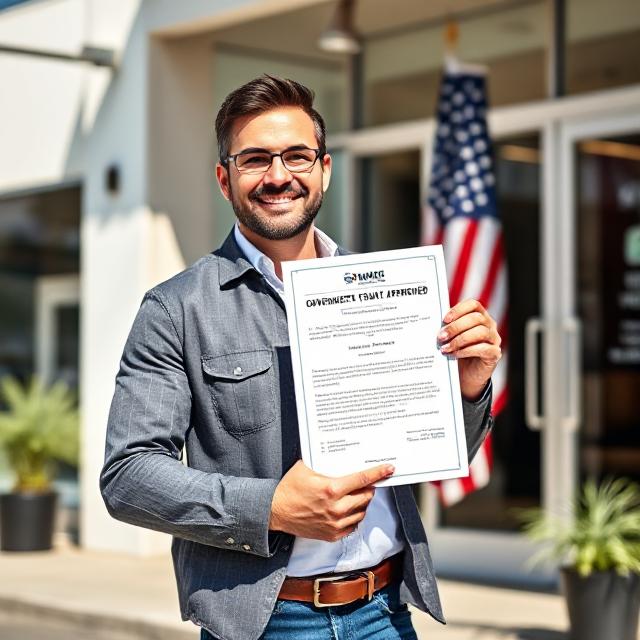
Introduction: Why Ethics is the Backbone of U.S. Business
In the United States, ethics in business is more than just a moral choice — it’s a competitive advantage. Companies are judged not only on the products they sell or the services they provide but also on how they treat employees, customers, and society at large.
From Wall Street firms to small-town startups, businesses face constant public scrutiny. A single ethical lapse can go viral online, damaging a brand’s reputation for years. In contrast, companies that consistently act with integrity earn loyal customers, attract top talent, and build lasting trust with investors.
The U.S. has a well-developed system of laws and regulatory agencies such as the Federal Trade Commission (FTC), the U.S. Securities and Exchange Commission (SEC), and the Department of Labor (DOL), all of which work to ensure that businesses operate fairly. Ethical practices aren’t just good for society — they’re also essential for staying on the right side of these agencies and avoiding legal trouble.
1. The Core Principles of Business Ethics
While industries differ, certain ethical principles remain universal in the U.S. business landscape.
1.1 Honesty and Transparency
Honesty forms the foundation of ethical conduct. U.S. consumers expect businesses to be truthful in advertising, contracts, and financial disclosures. The FTC actively prosecutes companies for misleading marketing claims, false endorsements, and deceptive practices.
1.2 Fair Treatment of Employees
The DOL enforces laws on minimum wage, workplace safety, and anti-discrimination. Ethical companies go beyond compliance, ensuring equal opportunities and creating an environment where every employee feels valued.
1.3 Accountability
Mistakes happen, but ethical businesses own up to them quickly. This builds trust with customers, employees, and shareholders. Corporate accountability often determines whether a crisis strengthens or destroys a brand.
1.4 Respect for Privacy
With data breaches on the rise, protecting customer information is vital. Agencies like the Federal Communications Commission (FCC) set privacy guidelines, and businesses that ignore them risk both fines and public outrage.
1.5 Compliance with Laws
Ethical businesses comply with all applicable laws, from environmental regulations to anti-bribery statutes. The Department of Justice (DOJ) plays a critical role in prosecuting companies that cross legal boundaries.
2. The Legal Framework for Ethics in U.S. Business
Ethics and law often overlap in the U.S., with regulations designed to enforce ethical behavior.
2.1 Consumer Protection Laws
The FTC safeguards consumers from fraud, false advertising, and unfair practices. Businesses found guilty of violating these laws can face hefty penalties.
2.2 Employment and Labor Laws
The Equal Employment Opportunity Commission (EEOC) ensures businesses avoid discriminatory hiring, firing, and workplace policies.
2.3 Securities and Investment Laws
The SEC enforces ethical standards in financial reporting and investment practices to protect shareholders.
2.4 Environmental Regulations
The U.S. Environmental Protection Agency (EPA) holds companies accountable for pollution and environmental harm. Ethical companies often go further, adopting sustainable practices.
3. Real-World Examples of Ethics in Business
Ethics isn’t just theory — real cases show its importance.
- Johnson & Johnson (1982 Tylenol Crisis) – The company recalled millions of bottles after tampering was discovered, prioritizing consumer safety over profit.
- Patagonia – Known for environmental stewardship, the brand reinvests profits into conservation efforts.
- Volkswagen Emissions Scandal – A case where unethical conduct led to billions in fines and lasting reputational damage.
4. Benefits of Strong Ethical Practices
Ethical businesses in the U.S. enjoy clear advantages:
- Customer Loyalty – People prefer to buy from companies they trust.
- Investor Confidence – Ethical conduct reduces financial risk.
- Employee Retention – Workers stay longer when they feel respected.
- Risk Reduction – Compliance with agencies like the FTC and SEC helps avoid costly legal battles.
5. Challenges in Maintaining Ethics in Today’s Market
Despite the benefits, companies face challenges:
- Global Supply Chains – Monitoring overseas partners for ethical compliance can be difficult.
- Profit Pressure – Short-term financial goals sometimes tempt executives to cut corners.
- Technology & Privacy – Protecting data in a digital-first economy is increasingly complex.
6. Strategies for Implementing Ethics in Business
To embed ethics into daily operations:
- Create a Code of Ethics – A clear set of principles for all employees.
- Provide Training – Regular workshops on legal and ethical responsibilities.
- Whistleblower Protections – Safe channels for reporting misconduct, as recommended by the U.S. Office of Special Counsel.
- Ethics Committees – Groups dedicated to monitoring compliance and addressing ethical concerns.
7. Industry-Specific Ethics
Different sectors face unique ethical challenges in the U.S.
7.1 Technology
Tech companies must balance innovation with privacy, cybersecurity, and AI transparency.
7.2 Finance
The finance sector is heavily regulated by the SEC to prevent fraud and insider trading.
7.3 Healthcare
Hospitals and pharma companies follow strict ethical guidelines set by the U.S. Food & Drug Administration (FDA).
8. The Role of Consumers in Corporate Ethics
Consumers play a powerful role in shaping corporate behavior. In the U.S., movements for sustainable products, fair wages, and ethical sourcing have influenced how companies operate. Social media campaigns can pressure brands to change unethical policies almost overnight.
9. Future of Business Ethics in the U.S.
Emerging trends suggest ethics will become even more central to business success. Transparency in supply chains, diversity in leadership, and environmental accountability will be key factors in corporate survival.
Conclusion
In the U.S., ethics in business is not simply about avoiding legal trouble — it’s about building a reputation that attracts customers, employees, and investors. Companies that integrate ethical practices into their DNA will thrive in the long term, while those that ignore them risk public backlash and regulatory penalties.
From following FTC consumer protection rules to adopting sustainable policies encouraged by the EPA, the message is clear: integrity is the most valuable currency in business.
Frequently Asked Questions (FAQ) – Ethics in Business
1. What does “ethics in business” mean in the U.S.?
In the U.S., business ethics refers to a set of principles that guide companies in making decisions that are fair, honest, and lawful. It covers everything from how businesses advertise their products to how they treat employees. Agencies like the Federal Trade Commission (FTC) and the Department of Labor (DOL) help enforce these standards.
2. Why is business ethics important for companies in the U.S.?
Ethics builds trust with customers, employees, and investors. In the U.S., unethical behavior can lead to legal action, fines, and severe damage to a company’s reputation. For example, the U.S. Securities and Exchange Commission (SEC) investigates fraud and insider trading to protect the public.
3. What are the main principles of business ethics?
The core principles include honesty, transparency, fairness, accountability, and respect for privacy. Compliance with laws, such as those enforced by the Equal Employment Opportunity Commission (EEOC), is also a key part of ethical business conduct.
4. How do U.S. laws support ethical business practices?
U.S. laws ensure that businesses operate fairly, protect consumer rights, and prevent discrimination. The Environmental Protection Agency (EPA) also enforces regulations to make sure companies protect the environment while doing business.
5. What are some examples of ethical business practices?
Examples include truthful advertising, fair pay, safe working conditions, sustainable production, and protecting customer data. Many companies also create internal ethics codes to guide decision-making.
6. How can a company improve its ethical standards?
Businesses can implement ethics training, create a code of conduct, protect whistleblowers, and set up compliance monitoring. Resources from the U.S. Office of Special Counsel can help organizations protect employees who report misconduct.
7. What happens when a company violates business ethics in the U.S.?
Consequences can include government fines, lawsuits, loss of business licenses, and long-term reputational harm. For example, companies caught in false advertising can face penalties from the FTC.
8. Are there industry-specific ethical guidelines in the U.S.?
Yes. For example, healthcare companies must follow guidelines from the U.S. Food & Drug Administration (FDA), while financial firms must comply with SEC regulations.
READ MORE:
- Bicycle Accident Lawyer: Your Ultimate Guide to Legal Support USA
- Unlocking Efficiency: How AI Automation Tools for Remote Work Are Changing the Game in USA
- AI Tools for Small Business in the USA: Essential Solutions to Cut Costs and Boost Growth





































